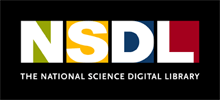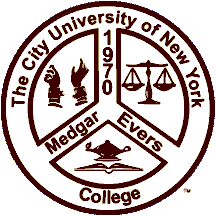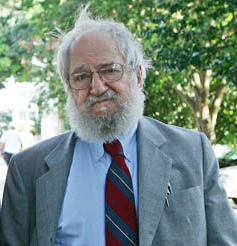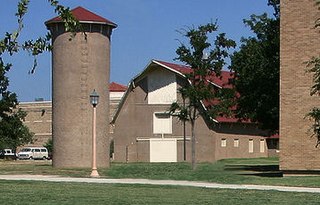
In the United States, education is provided in public and private schools and by individuals through homeschooling. State governments set overall educational standards, often mandate standardized tests for K–12 public school systems and supervise, usually through a board of regents, state colleges, and universities. The bulk of the $1.3 trillion in funding comes from state and local governments, with federal funding accounting for about $260 billion in 2021 compared to around $200 billion in past years.

Science education is the teaching and learning of science to school children, college students, or adults within the general public. The field of science education includes work in science content, science process, some social science, and some teaching pedagogy. The standards for science education provide expectations for the development of understanding for students through the entire course of their K-12 education and beyond. The traditional subjects included in the standards are physical, life, earth, space, and human sciences.

National Science Digital Library (NSDL) of the United States is an open-access online digital library and collaborative network of disciplinary and grade-level focused education providers operated by the Institute for the Study of Knowledge Management in Education. NSDL's mission is to provide quality digital learning collections to the science, technology, engineering, and mathematics (STEM) education community, both formal and informal, institutional and individual. NSDL's collections are refined by a network of STEM educational and disciplinary professionals. Their work is based on user data, disciplinary knowledge, and participation in the evolution of digital resources as major elements of effective STEM learning.

In education, a curriculum is the totality of student experiences that occur in an educational process. The term often refers specifically to a planned sequence of instruction, or to a view of the student's experiences in terms of the educator's or school's instructional goals. A curriculum may incorporate the planned interaction of pupils with instructional content, materials, resources, and processes for evaluating the attainment of educational objectives. Curricula are split into several categories: the explicit, the implicit, the excluded, and the extracurricular.

Medgar Evers College is a public college in New York City. It is a senior college of the City University of New York (CUNY), offering baccalaureate and associate degrees. It was established in 1970 in central Brooklyn. It is named after Medgar Wiley Evers, an African American civil rights leader assassinated on June 12, 1963.

Constructionist learning is the creation by learners of mental models to understand the world around them. Constructionism advocates student-centered, discovery learning where students use what they already know to acquire more knowledge. Students learn through participation in project-based learning where they make connections between different ideas and areas of knowledge facilitated by the teacher through coaching rather than using lectures or step-by-step guidance. Further, constructionism holds that learning can happen most effectively when people are active in making tangible objects in the real world. In this sense, constructionism is connected with experiential learning and builds on Jean Piaget's epistemological theory of constructivism.

Environmental education (EE) refers to organized efforts to teach how natural environments function, and particularly, how human beings can manage behavior and ecosystems to live sustainably. It is a multi-disciplinary field integrating disciplines such as biology, chemistry, physics, ecology, earth science, atmospheric science, mathematics, and geography.

Agricultural education is the systematic and organized teaching, instruction and training available to students, farmers or individuals interested in the science, business and technology of agriculture as well as the management of land, environment and natural resources.
Education in Armenia is held in particular esteem in Armenian culture. Education developed the fastest out of the social services, while health and welfare services attempted to maintain the basic state-planned structure of the Soviet era, following Armenia's independence in 1991. Today, Armenia is trying to implement a new vision for its higher education system while pursuing the goals of the European Higher Education Area. The Ministry of Education and Science oversees education in the country.

Science, technology, engineering, and mathematics (STEM) is an umbrella term used to group together the distinct but related technical disciplines of science, technology, engineering, and mathematics. The term is typically used in the context of education policy or curriculum choices in schools. It has implications for workforce development, national security concerns, and immigration policy, with regard to admitting foreign students and tech workers.

In the 21st century, the Government of Egypt has given greater priority to improving the education system. According to the Human Development Index (HDI), Egypt is ranked 97 in the HDI, and 9 in the lowest 10 HDI countries in the Middle East and Northern Africa, in 2014. With the help of the World Bank and other multilateral organizations Egypt aims to increase access in early childhood to care and educate the inclusion of Information and Communication Technology (ICT) at all levels of education, especially at the tertiary level. The government is responsible for offering free education at all levels. The current overall expenditure on education is about 12.6 percent as of 2007. Investment in education as a percentage of GDP rose to 4.8 in 2005 but then fell to 3.7 in 2007. The Ministry of Education is also tackling a number of issues: trying to move from a highly centralized system to offering more autonomy to individual institutions, thereby increasing accountability. The Human Rights Measurement Initiative finds that Egypt is achieving 65.5% of what should be possible for the right to education, at their level of income.
Universal preschool is an international movement supporting the use of public funding to provide preschool education to all families. This movement is focused on promoting a global, rather than local, preschool program. The goal is to provide equity across all socioeconomic backgrounds, enabling children to improve their academic and social skills before they attend kindergarten. Universal preschool, funded by the public, would allow more families to send their children to preschool.

Jewish education is the transmission of the tenets, principles, and religious laws of Judaism. Jews value education, and the value of education is strongly embedded in Jewish culture. Judaism places a heavy emphasis on Torah study, from the early days of studying the Tanakh.

Education in Ghana uses a dualistic approach encompassing both formal and informal learning systems. The current formal educational system was introduced during European colonisation. However, learning systems existed prior to that. The University of Moliyili is one of the earliest learning centers in Ghana established in the 1700s. During colonisation, European settlers initially introduced a formal education system addressed to the elites, while education of the average citizen was mainly informal, and based on apprenticeship. Economic activities in pre-colonial Ghana were based on farm produce shared within households and members of each household specialized in providing necessities such as cooking utilities, shelter, clothing, and furniture, and trade with other households was therefore practiced on a very small scale. As such there was no need for employment outside the household that would have otherwise called for disciplines, values, and skills through a formal education system. After colonization, Ghana's economy became a hybrid of subsistence and formal economy.
Education in the Philippines is compulsory at the basic education level, composed of kindergarten, elementary school, junior high school, and senior high school. The educational system is managed by three government agencies by level of education: the Department of Education (DepEd) for basic education; the Commission on Higher Education (CHED) for higher education; and the Technical Education and Skills Development Authority (TESDA) for technical and vocational education. Public education is funded by the national government.
Education in Alberta is provided mainly through funding from the provincial government. The earliest form of formal education in Alberta is usually preschool which is not mandatory and is then followed by the partially-mandatory kindergarten to Grade 12. This is managed by Alberta Education which has divided the province into 379 school authorities. Higher education in the province is managed by Alberta Advanced Education.
The Association of Science and Technology Centers (ASTC) is a non-profit, global organization based in Washington, D.C., in the United States, that provides professional support for science centers, museums, and related institutions. ASTC's goal is to increase awareness of the contributions its members make to their communities and the field of informal STEM learning.

The University of Florida College of Education is the teacher's college, or normal school, of the University of Florida. The College of Education is located on the eastern portion of the university's Gainesville, Florida, campus in Norman Hall, and offers specializations in special education, higher education, educational policy, elementary education, counseling, teaching, and other educational programs. It is consistently ranked one of the top schools of education in the nation. The college was officially founded in 1906. In fiscal year 2024, the College of Education generated $150.3 million in research funding.

The Exploratorium is a museum of science, technology, and arts in San Francisco, California. Founded by physicist and educator Frank Oppenheimer in 1969, the museum was originally located in the Palace of Fine Arts and was relocated in 2013 to Piers 15 and 17 on San Francisco's waterfront.
Education has played a central role in Islam since the beginnings of the religion, owing in part to the centrality of scripture and its study in the Islamic tradition. Before the modern era, education would begin at a young age with study of Arabic and the Quran. For the first few centuries of Islam, educational settings were entirely informal, but beginning in the 11th and 12th centuries, the ruling elites began to establish institutions of higher religious learning known as madrasas in an effort to secure support and cooperation of the ulema. Madrasas soon multiplied throughout the Islamic world, which helped to spread Islamic learning beyond urban centers and to unite diverse Islamic communities in a shared cultural project. Madrasas were devoted principally to study of Islamic law, but they also offered other subjects such as theology, medicine, and mathematics. Muslims historically distinguished disciplines inherited from pre-Islamic civilizations, such as philosophy and medicine, which they called "sciences of the ancients" or "rational sciences", from Islamic religious sciences. Sciences of the former type flourished for several centuries, and their transmission formed part of the educational framework in classical and medieval Islam. In some cases, they were supported by institutions such as the House of Wisdom in Baghdad, but more often they were transmitted informally from teacher to student.













